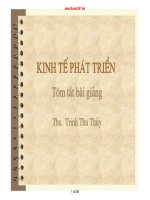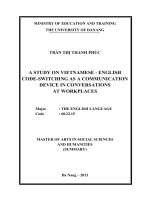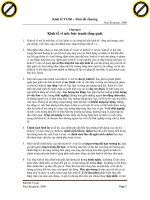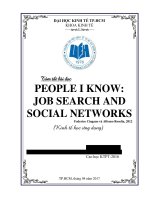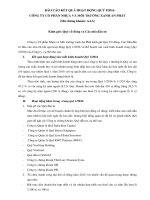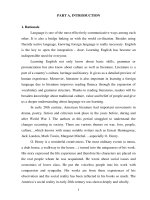Business Brief u02 Tóm tắt case study kinh doanh
Bạn đang xem bản rút gọn của tài liệu. Xem và tải ngay bản đầy đủ của tài liệu tại đây (669.74 KB, 1 trang )
unit 2 •• Work and leisure
business brief
It has never been easy to balance work and leisure. During the late 20th century, the concept
of a job for life was largely replaced by short-term or fixed-term contracts. Recent economic
upheavals have made many workers feel that their job security is less secure. Some find
themselves with too much free time on their hands when company restructures lead to
redundancies.
BUSINESS BRIEF
Despite these challenges, workforce values in the 21st century do seem to be shifting. Employees
are less willing to trade all other aspects of life for purely professional or financial gains. Work–
life balance has become a new goal for many. The average length of the European working week
is decreasing, from 40.5 hours in 1991 to 37.5 hours in 2010. Self-employed workers in Europe
can expect to work longer hours, with 42 per cent working more than 48 hours a week. Similarly,
longer hours are more usual in manufacturing (with 20 per cent of the workforce working more
than 48 hours a week) than in service industries (where 15 per cent work more than 48 hours a
week).*
New technologies have proved a double-edged sword. E-mail, laptops and smartphones have
intensified the pace of work and allow people to be contacted anywhere at any time. However,
they have also allowed employers and employees to explore different ways of working.
Teleworking seems like a natural application of modern technology. It can help to balance
employment with domestic commitments and allow greater time for leisure activities by cutting
down on the time spent commuting. Some flexible working practices, such as flexitime or parttime work, have also become well established. Some people choose to downshift by moving to a
less demanding job or decreasing hours and pay, in order to enjoy a less pressurised lifestyle and
to improve their quality of life.
Work remains an integral and, for most of us, essential part of our everyday life. We are arguably
armed with more tools and opportunities than ever before to share the time we give to work and
the time we give to ourselves and family. Yet getting that balance right remains a difficult task.
Read on
* />A report on European working conditions carried out by the European Foundation for the
Improvement of Living and Working Conditions.
/>Details of a survey from the Office of National Statistics about the balance between work
and leisure
/>Meet the need for work–life balance, a series of documents exploring issues connected to work–
life balance from the perspective of employers and employees
Ian Sanders: Juggle, Rethink work, Reclaim your life, Capstone, 2009
20
M02_MARK_TBR_ELEGLB_9737_U02.indd 20
23/10/2012 10:45



